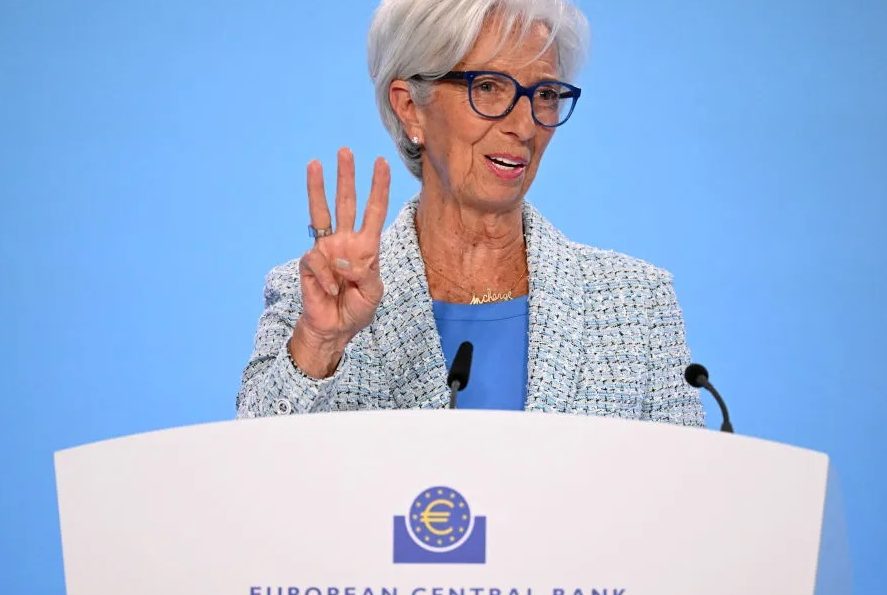The National Rally is comfortably leading in the polls. The charismatic Jordan Bardella is set to become the next prime minister. And Marine Le Pen looks to be heading for power in France. When she gets there, however, she faces a potentially far more lethal opponent than the bruised and increasingly powerless President Emmanuel Macron. The president of the European Central Bank, Christine Lagarde. In reality, the next big issue in Eurozone politics will be whether Lagarde crushes Le Pen — and whether that risks compromising the independence of the bank for good.
Lagarde has the power to crush Le Pen. The only real question will be whether she chooses to use it
If Le Pen’s National Rally takes power early next month, as seems increasingly likely, the new government will be riding into a financial storm. French equities have slumped, and the country’s bond yields have spiked, as the markets look nervously at the lavish spending promises of the National Rally. Yesterday, the European Union turned the pressure up a notch, putting France into a formal “deficit” procedure. By the autumn, officials in Brussels will be demanding that Le Pen imposes tens of billions of spending cuts to bring the deficit under control. If she and Bardella refuse, as they almost certainly will, the bond market will be in turmoil, and the government may find it impossible to finance itself. “Un moment Liz Truss” as the outgoing finance minister Bruno Le Maire describes it, will have arrived.
The crucial player as that drama plays out will be another French woman, the ECB president Christine Lagarde. The expectation will be that the ECB will if necessary step in to buy French bonds, as it has done in the past for Italy, and other highly indebted countries within the Eurozone. Any hint that it would hold back would trigger a meltdown. After all, the only possible reason for holding French debt is that the ECB stands behind it. On every other measure, the bonds are practically worthless. If that commitment was in doubt, France’s finances would collapse.
And yet here’s the twist. Lagarde is a key ally of Macron. He hustled her into the ECB even though, as a lawyer by training, she was an odd choice to lead a central bank, a job that usually goes to an economist or financial expert. Of course, the ECB is not meant to be political. Like any central bank, it is meant to remain neutral, especially in the internal politics of member states. In practice, it has interfered before. Notably in Italy, where it helped install a technocratic government led by Lagarde’s predecessor Mario Draghi. In reality, Lagarde has the power to crush Le Pen. The only real question will be whether she chooses to use this power — and what the consequences will be if a newly elected government in Paris is destroyed by an unelected central banker in Frankfurt.
This article was originally published on The Spectator’s UK website.


























Leave a Reply